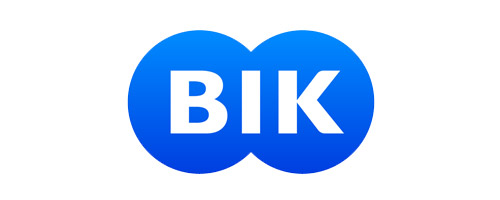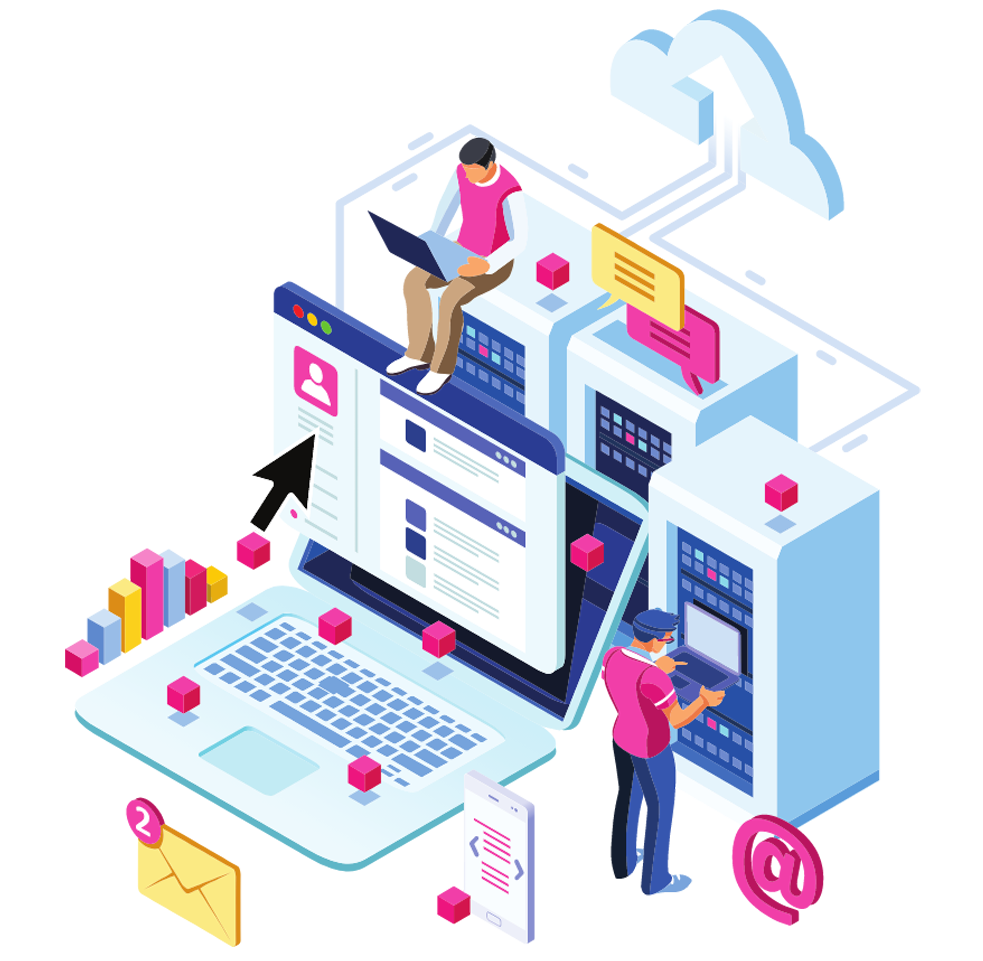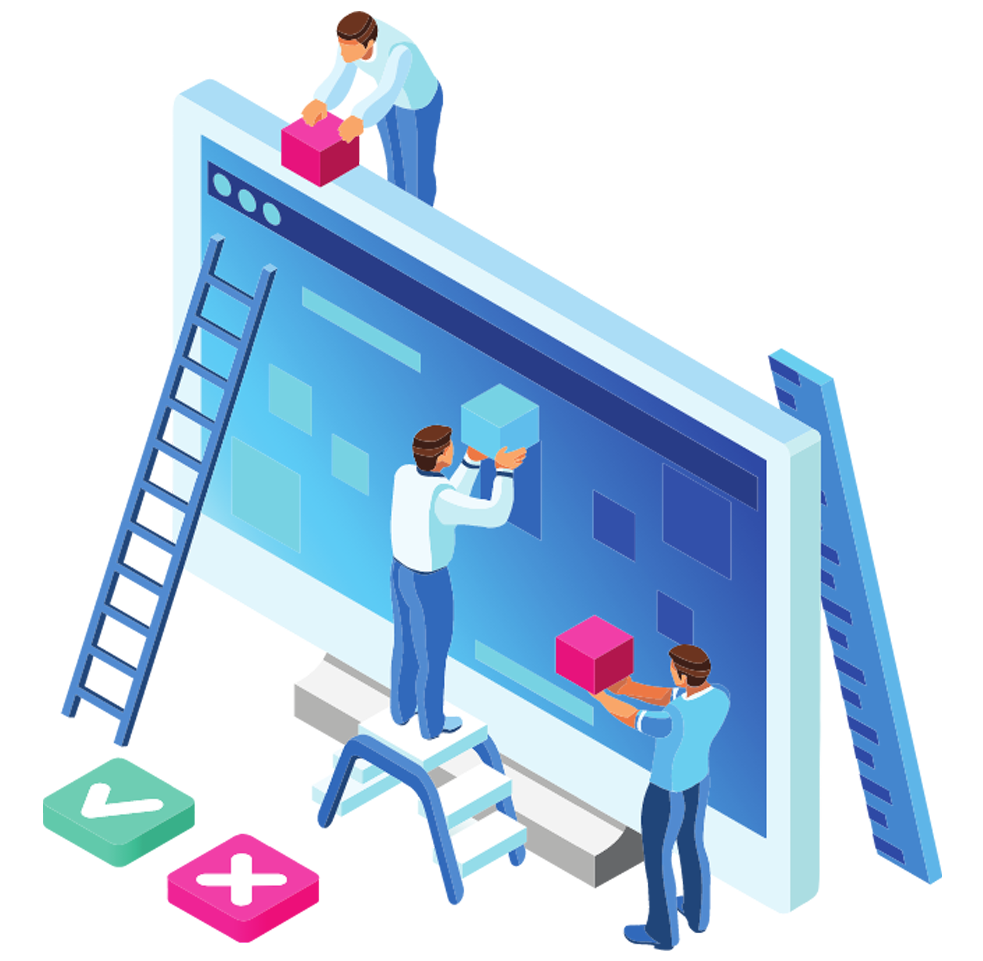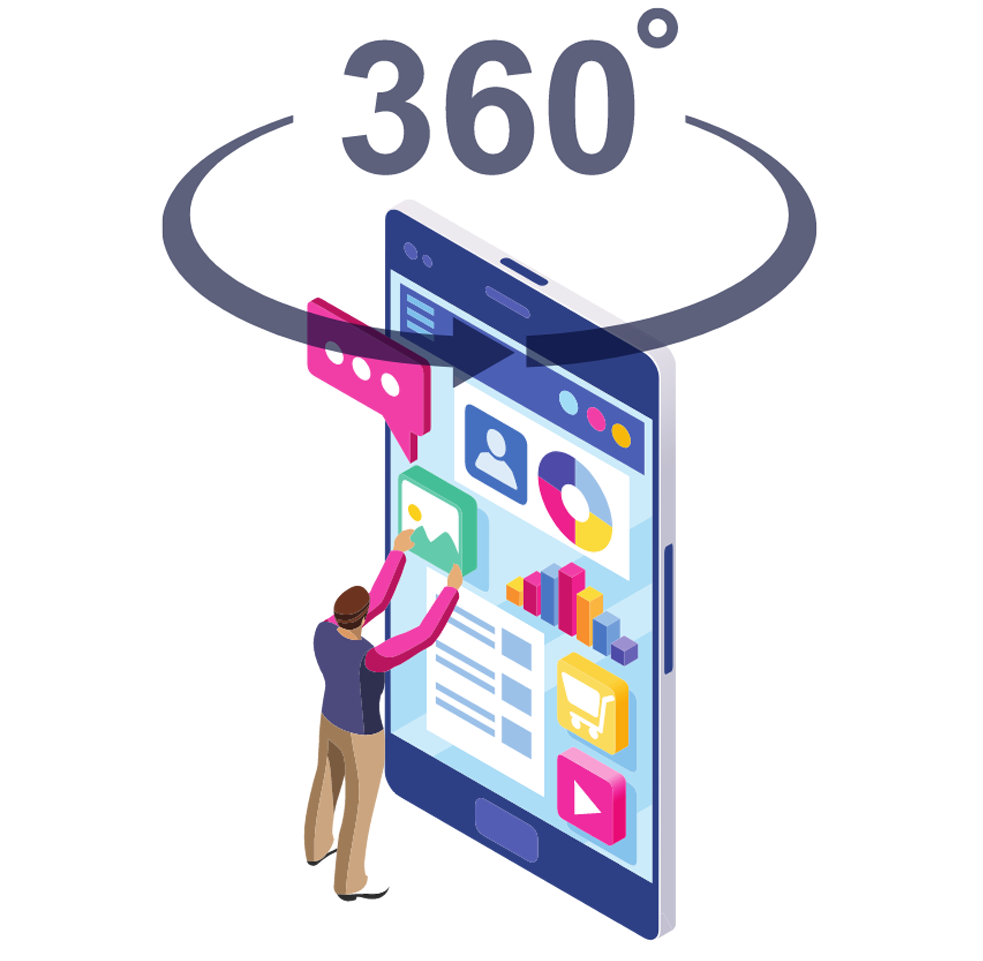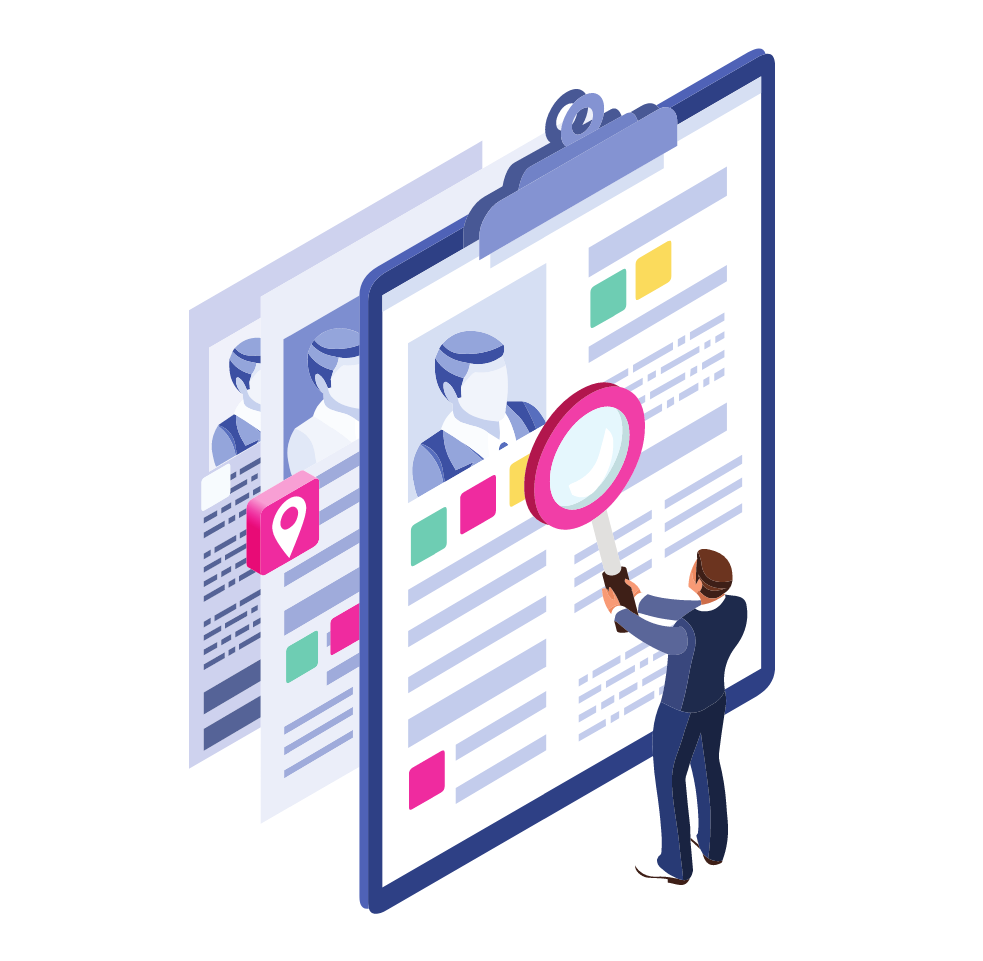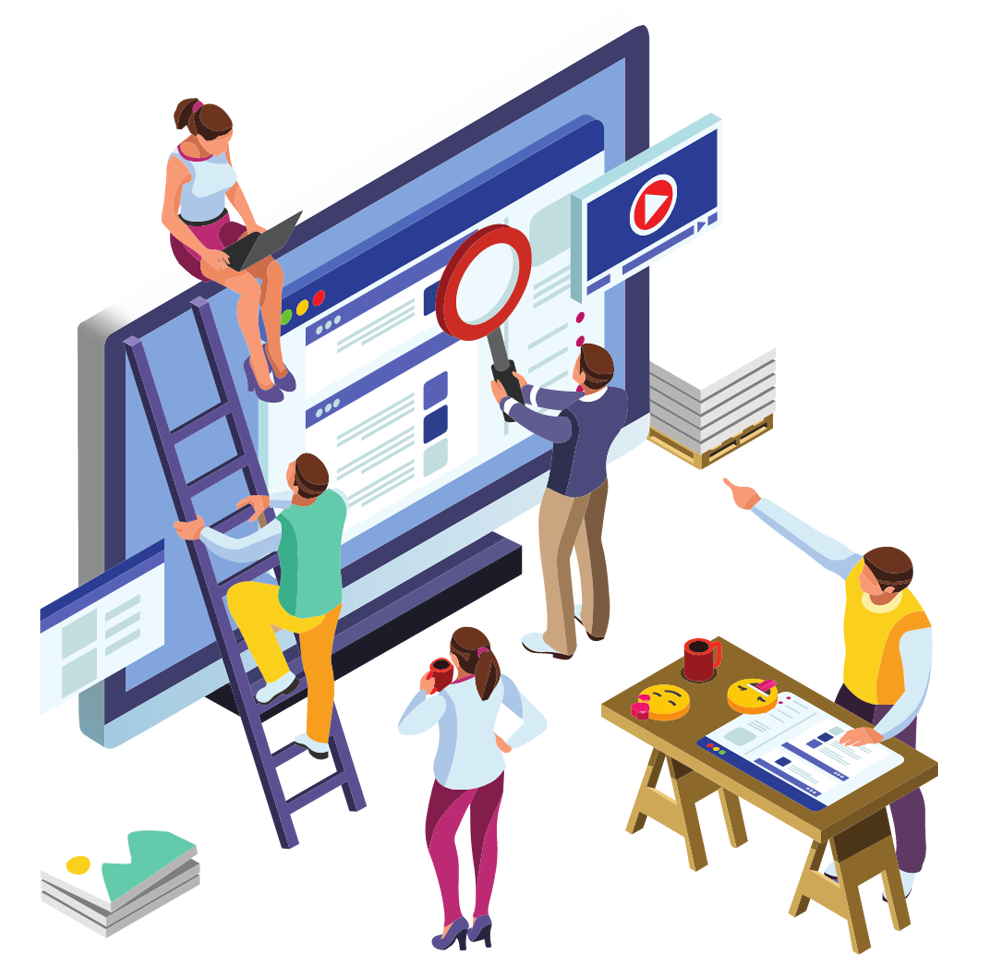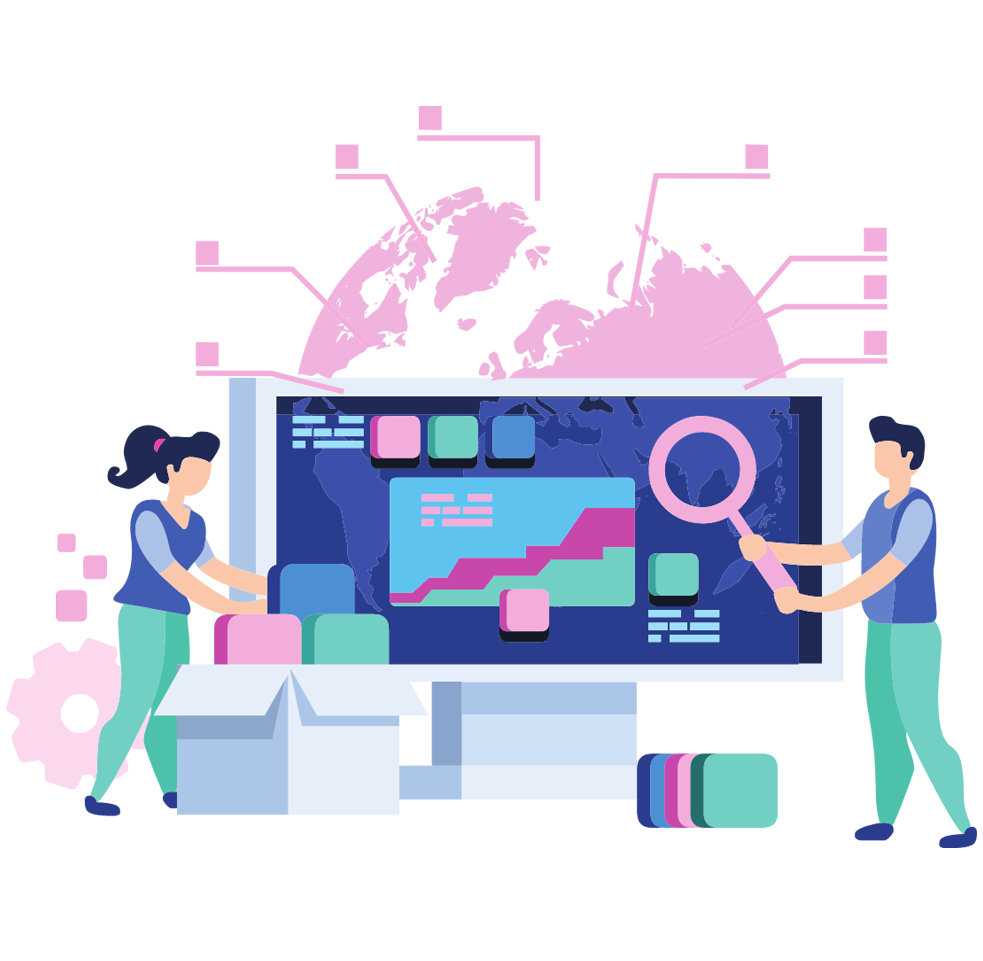People are living longer and living more years in good health, according to a recent WHO report. Global life expectancy at birth increased from 66.8 years in 2000 to 73.3 years in 2019. In turn, Healthy Life Expectancy (HALE) increased from 58.3 years to 63.7 years. So we are living longer and longer, and consequently, we are benefiting more and more from healthcare in the broadest sense, in which we are increasingly supported by modern technologies.
Technology in Healthcare is not only about the groundbreaking da Vinci Robot, which revolutionized surgery, but also about less spectacular solutions that make life easier for patients, doctors, and pharmacists worldwide every day.
Today we’ll talk about how the aforementioned groups are benefiting from modern technology.
Advantages of digitization
Digitization of the Healthcare industry is a natural progression, with companies and medical facilities increasingly turning to modern technologies to gain easier access to medical data, and securely store, process, and share it. This makes personalization easier – allowing doctors and other authorized persons to make better decisions, make more accurate diagnoses, and also, recommend more effective treatments.
This is where artificial intelligence and Big Data technology come into play. The former helps automate repetitive tasks, so doctors can devote themselves to more complex issues and the most important person in this whole puzzle – the patient. Big Data, on the other hand, enables predictive analysis and prevention, personalization of healthcare, process optimization, and data management, clinical research and drug development, and population health monitoring, among others.
Telemedicine is also benefiting from the popularization of technology in the sector. Just a few years ago, it was unimaginable to call a doctor by phone or video, get advice and a correct diagnosis without leaving home, and then process an e-prescription and start treatment. Queues at clinics may soon disappear forever, and people living in places far from facilities will no longer be discriminated against based on where they live. Generally, all they need is an Internet connection to get help.
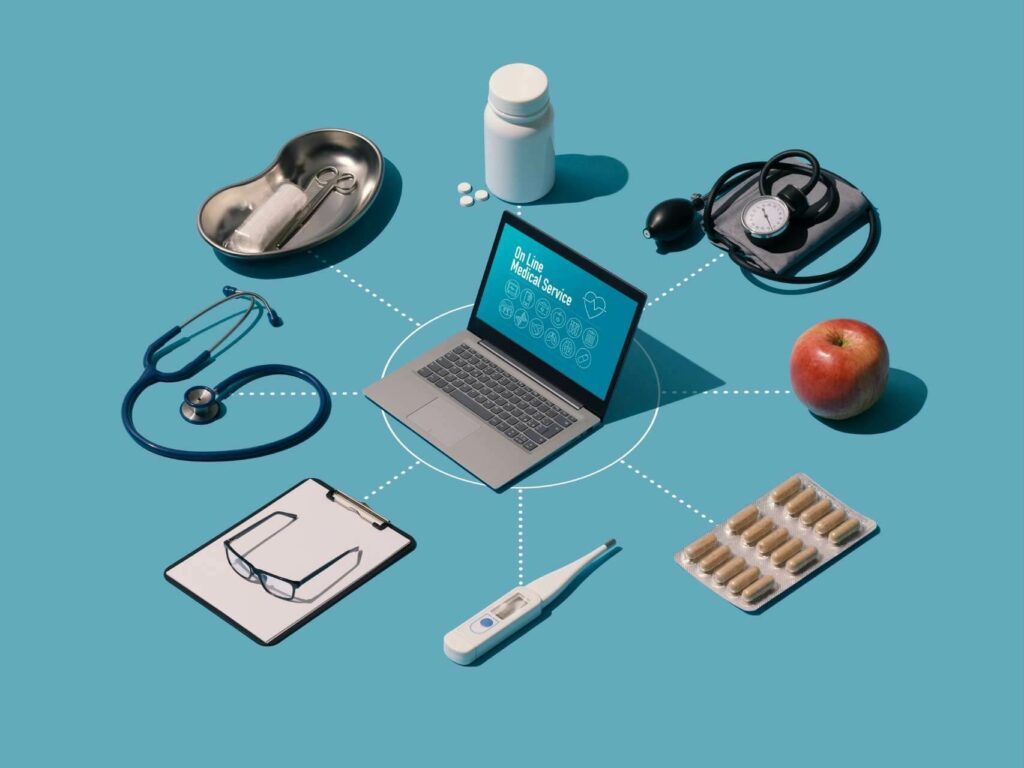
Market trends in the healthcare industry
In the context of the implementation of technological solutions in the Healthcare industry, it is worth paying attention to trends – as they shape the demand for modern solutions.
What trends are we talking about?
Cloud computing for the Healthcare sector
Cloud computing technologies can help optimize spending, increase the flexibility and scalability of the solutions used, as well as access data in real-time.
Here are some specific opportunities offered by cloud technologies:
- expanding machine learning and data analytics capabilities (e.g., medical and genetic, threat prediction);
- self-service access to pharmaceutical product handling and fulfillment;
- use of blockchain for drug serialization and traceability;
- automation of critical business processes using Salesforce;
- cloud-based serialization process;
- inventory tracking;
- management of clinical trials on a cloud platform.
Artificial intelligence and robotization
The healthcare industry, like many other sectors, can benefit from the latest technological advances in artificial intelligence and robotization. We’re talking, for example, about process and task automation, customer service support, and prediction using AI.
What exactly are we talking about?
- Using AI algorithms for demand forecasting (e.g., analyzing weather data to predict peak hay fever season);
- Using AI to improve transportation and logistics efficiency (e.g., route optimization) – reducing miles traveled per year (more than 300,000);
- automating some routine administrative processes for reporting adverse drug events;
- Significant reduction in the time spent by employees on handling reports.

Putting the patient at the center – “patient-centricity”
Technologies make it possible to put the patient at the center of events. Coordinated care and pharmaceutical care are gaining popularity, while mobile devices are increasing in importance, and it is becoming more popular to connect several entities in the healthcare ecosystem, which often makes it possible to diagnose and treat without leaving home.
Some examples of “patient-centricity”:
- a technological ecosystem that connects patients with doctors, pharmacists, and other specialists on-site, based on a CRM-type tool;
- systems that enable electronic management of medical records: easy access to a patient’s medical history and test results;
- telemedicine and remote health monitoring of patients – measuring devices or activity monitoring devices that form the Internet of Things, such as blood pressure monitors, glucometers, pulse oximeters, electrocardiographs, thermometers, and weight scales.

Blockchain technology in the service of medicine
Although we tend to associate the blockchain concept with the FinTech industry, the healthcare sector also places great emphasis on the security, immutability, and transparency of stored and processed data.
Areas where blockchain can help the Healthcare industry:
- storing and sharing patient data, e.g., test results, diagnoses, medical histories, or treatments;
- supply chain management – tracking and managing the supply of medicines along the production-distribution line: prevention of counterfeiting, quality control, and availability;
- clinical trials: e.g., data security monitoring;
- automatic payment processing between patients, insurers, and medical facilities (smart contracts) – preventing counterfeiting or data leakage, saving time, and reducing costs.
What are the challenges of digitizing the Healthcare industry?
Digital transformation, like any new initiative, brings with it certain challenges that need to be addressed. So what might entities investing in digitization in the healthcare industry be concerned about?
Data security
Storing, processing, and sharing medical data requires taking good care of its security – as protecting patient confidentiality and privacy is crucial. After all, no one can afford a data security breach, which in the worst-case scenario can take the form of patient identity theft or medical information leakage.
The solution is to use effective data protection measures, such as encryption, two-factor authentication, and security systems.

Integration of systems
In the Healthcare industry, there are many systems and applications that are used by different entities, such as hospitals, clinics, laboratories, pharmacies, etc. The challenge is to integrate these systems so that information flows smoothly between them.
As a result of the lack of integration, work is done twice. There is also a lack of data consistency, and difficulties arise in accessing complete patient medical information.
Organizational culture
The introduction of digital solutions requires a change in organizational culture. Moreover, it is necessary to involve medical and administrative staff in the process of adapting and learning new technologies. Some employees may have objections or fear losing their jobs due to the automation of processes – so it is worthwhile to provide adequate training.
Costs and investments
Introducing digital solutions in the Healthcare industry involves investment costs in IT infrastructure, software purchase, staff training, and systems maintenance. Some healthcare facilities, especially smaller ones, may face financial difficulties or budget constraints that make it difficult to introduce new technologies.
Patient comfort
Patients can be reluctant to introduce modern technology in healthcare, and this is understandable. This reserve may stem, for example, from a lack of confidence in the new tools, difficulties in using them, or concerns about data privacy.
So it’s worth convincing patients of the benefits of introducing digital solutions in healthcare. Here are some of them:
- easier access to healthcare,
- faster appointment scheduling,
- remote medical consultations and
- the ability to monitor one’s health via mobile apps.
Compliance with laws and regulations
In the Healthcare industry, there are many laws and regulations regarding the protection of medical data, such as the RODO or local country regulations. Digital solutions must be compliant with these regulations to ensure patient privacy and avoid legal consequences.
The need for continuous development and updates
Technology is constantly evolving, and with it come new solutions and opportunities. Organizations and medical facilities should therefore be ready to continuously develop, learn and update their systems. This is because they need to keep up with technological advances and take full advantage of new tools.
Digitization of the Healthcare industry: the NEUCA case study
A good example of the digitization of Healthcare organizations is the story of the Polish company NEUCA – a market leader in the wholesale of medicines. The company has been active in the healthcare field in Poland and abroad for 30 years and is developing the HeyDoc patient portal. NEUCA chose to implement Salesforce Marketing Cloud, through which it is building a competitive advantage, patient trust, and engagement. By personalizing the content published on the portal, the number of both users of the HeyDoc platform and appointments made through it increases.
The benefits of Salesforce implementation include:
- creation of patient segments based on customer profile:
- bio and demographic information,
- visit/transaction history,
- behaviors/interactions
- topics of articles read;
- implementation of an exit-intent component designed to retain visitors who intend to leave the site;
- ability to customize the use of customer data between subsidiaries based on consent and GDPR compliance;
- implementation of key Marketing Automation functionalities, including:
- segmentation and personalization
- content and services for patients
- A/B/n testing and campaign management tools.

Salesforce Health Cloud
The Salesforce ecosystem includes a solution designed with the Healthcare industry in mind. A number of tools and features help manage patient relationships and facilitate healthcare coordination. It also enables process improvement in medical facilities.
What tools and features does Salesforce Health Cloud offer?
- Patient data management (medical history, test results, prescriptions, treatment plans): collect, store, and access patient data in one place – a complete picture of the patient’s situation;
- Health care coordination: easy communication and collaboration between the various parties involved in a patient’s health care (doctors, nurses, pharmacists);
- Process automation: patient registration, appointment scheduling, task management, call handling – accelerated workflow, minimized errors, and higher efficiency;
- Personalized patient interaction: create a personalized patient experience, track preferences, visit history and contacts;
- Data analysis and reporting: patient data, patient outcomes, process efficiencies, monitoring and evaluating healthcare outcomes, identifying areas for improvement;
- Security and compliance: ease of compliance with strict data security and compliance standards;
- Communication: interaction through various channels, SMS, email, and mobile apps – appointment reminders, FAQs, provision of medical and educational information;
- Management and monitoring of cases and requests: complaints, claims, data access requests, etc.;
- Integration with other systems: Salesforce Health Cloud integrates seamlessly with many data management systems:
- medical (EMR/EHR),
- laboratory,
- related to payments,
- provisioning, etc.;
- Predictive analytics and research: analytics functions enable predictive analysis, trend research, monitoring of medical outcomes, etc.

Digitization of the Healthcare industry: Summary
In conclusion, the best recommendation for Salesforce solutions is its globally recognized customers. The company’s products are used by Sanofi, Philips Healthcare, Roche, Novartis, AstraZeneca, and others.
At Cloudity, we have been implementing Salesforce for many years. In addition to Neuca, we have worked for such healthcare brands as Medicover and ZnanyLekarz.pl, an online platform that allows publishing opinions about doctors and making appointments over the Internet. So, if you would like to know more about Salesforce solutions for the Healthcare industry, contact us!



